Width Issues and Unfulfilled Potential:
What’s going wrong at Manchester City?
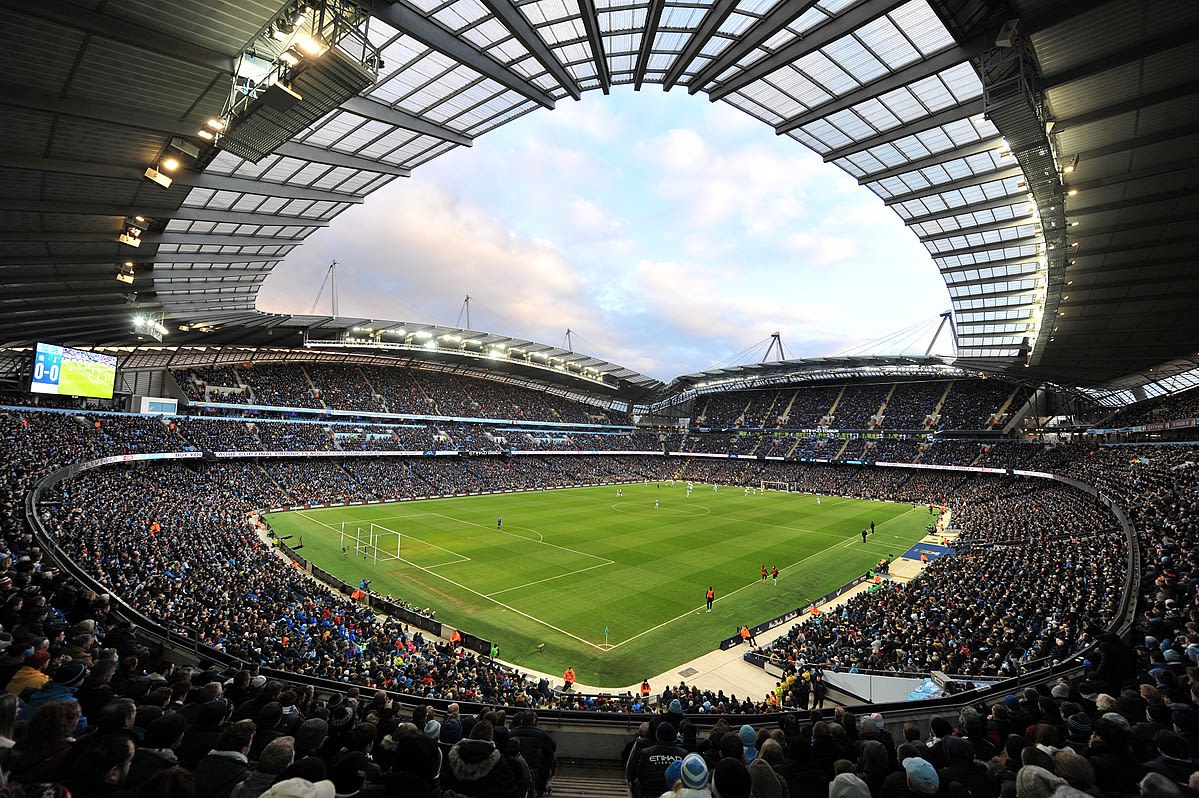
In the aftermath of Manchester City’s 2-0 defeat at the Tottenham Hotspur Stadium, I stumbled across a tweet explaining City’s personnel issues perfectly:
Jesus isn’t as good as Aguero. Rodri isn’t as good as Fernandinho. Mahrez isn’t as good as Sane and nobody City can field is as good as David Silva.
— Tim Stillman (@Stillberto) November 21, 2020
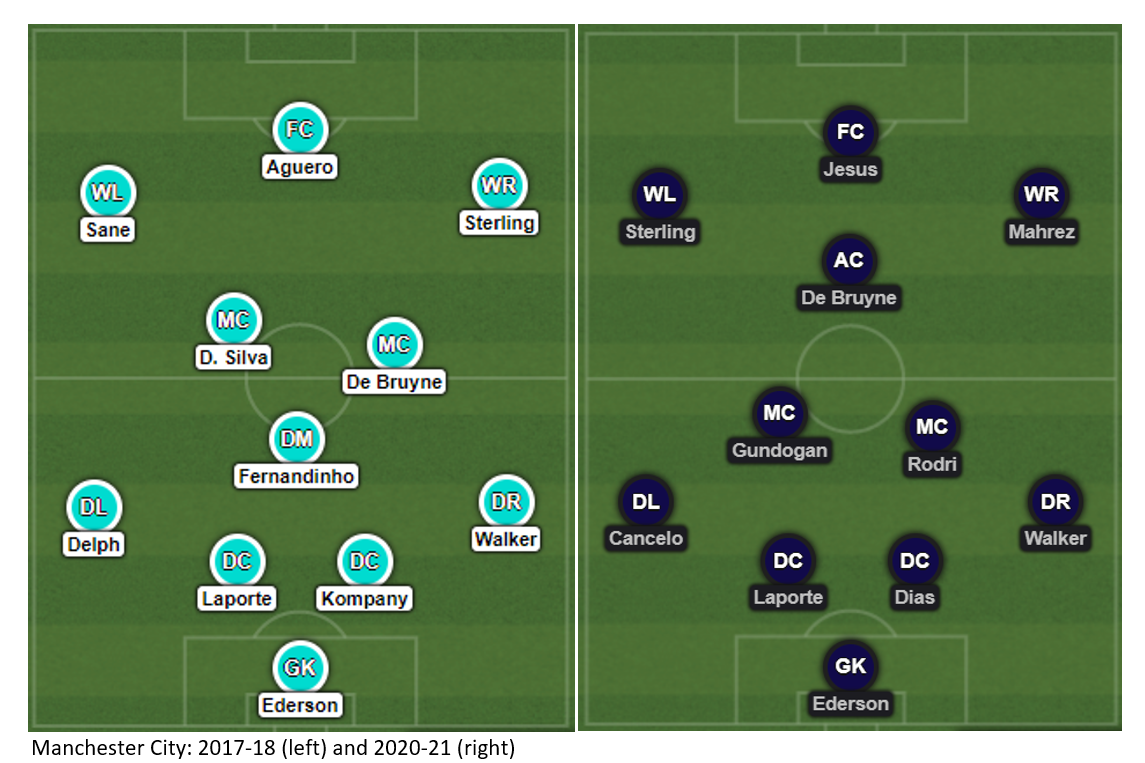
There were faint signs of a recovery after routine home wins against Burnley and Fulham, but after a stalemate in the Manchester Derby and a dismal 1-1 draw at home to West Brom, criticism of City has reignited. So, what explains City’s faltering start to the season? They had a late pre-season, have been plagued by injuries and fitness issues, and had a tough fixture list but the problem seems to go deeper.
Here’s an insight into their tactical issues and personnel problems:
"The problem here, however, is Guardiola’s use of inverted wingers"
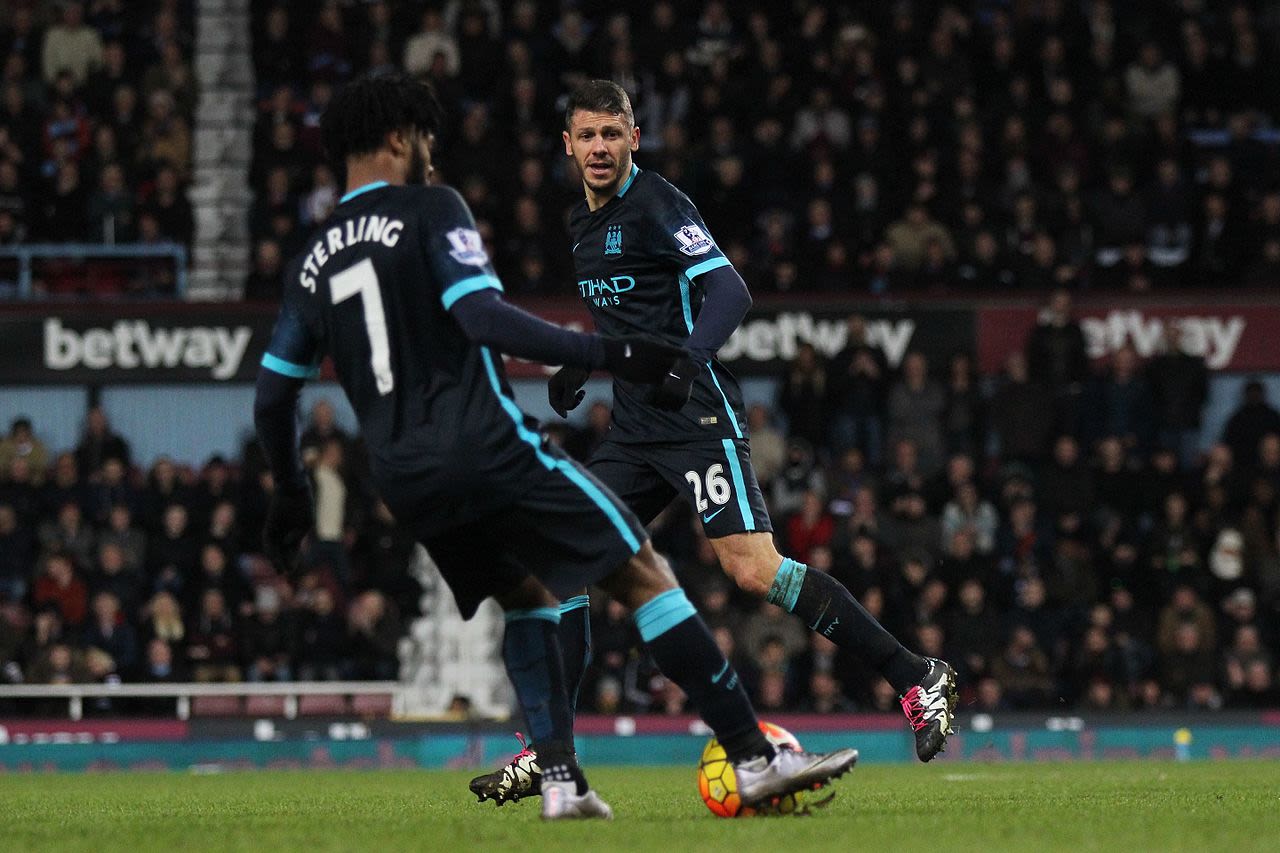
When considering the archetypal model of City’s 17/18 centurions, their shape in possession provided balance, width and control. Kyle Walker held his position from right back to make full use of his blistering pace against breakaways. Meanwhile, Fabian Delph (or Oleksandr Zinchenko) would move into central midfield to break up counter attacks alongside Fernandinho and give extra control in the middle of the park when in possession. Given the narrow nature of City’s fullbacks, Leroy Sane and Raheem Sterling would play high and wide on the side of their preferred foot. This stretched the opposition’s defence and Sterling and Sane had the pace, dynamism and deadliness to beat their man and cause a threat from wide areas – instead of looking lost out on the wing.
This season couldn’t be any more different. While Walker is still restricted from bombing forward to utilise his pace and strength against counter attacks, makeshift left back Joao Cancelo likes to provide a creative threat by cutting onto his right foot in midfield areas. Thus far the Portugal international has been a creative threat for City, he’s created the third highest number of chances for Guardiola's side (19) after De Bruyne (36) and Mahrez (23).
The problem here, however, is Guardiola’s use of inverted wingers. Sterling, and especially Mahrez, will always look to cut inside on their stronger foot. This makes City very narrow and predictable with no fullback or winger to provide the width needed to break down deep defences.
"Guardiola deployed both wide wingers and wide fullbacks with little success"
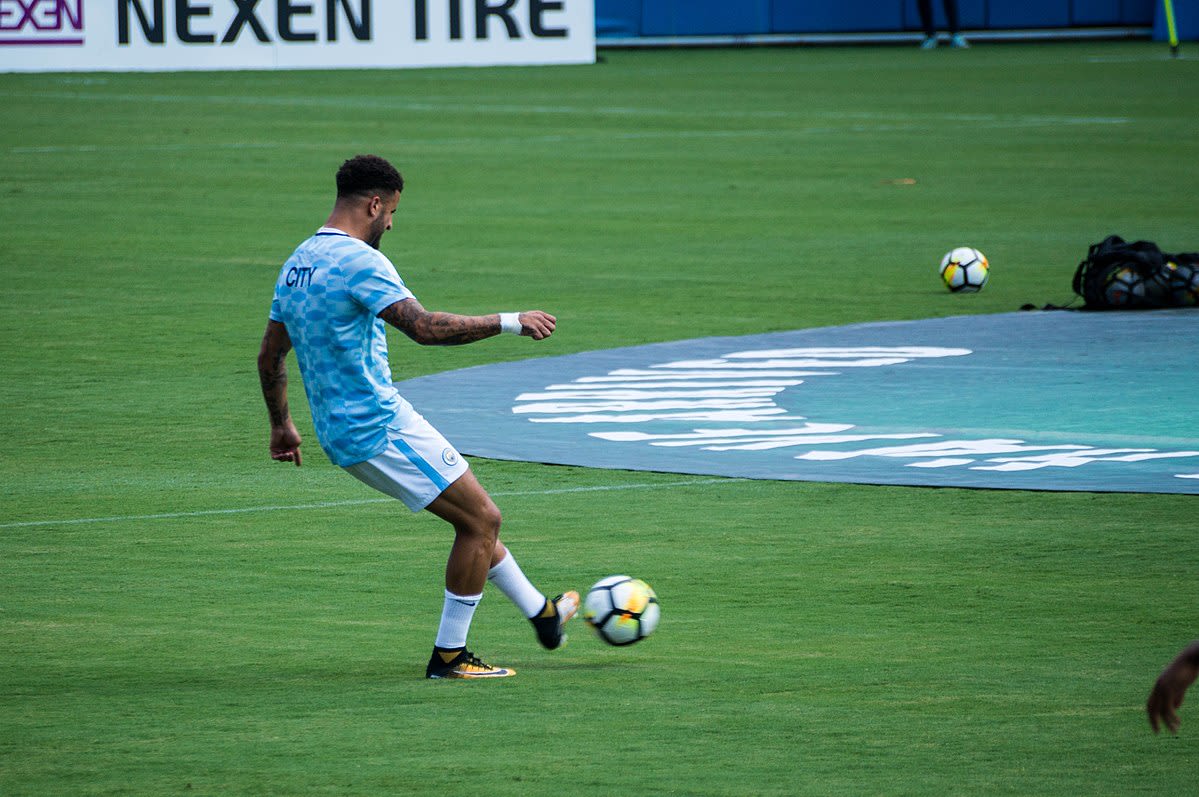
A possible solution would be to return to wide wingers. In City’s first match against Marseille, Sterling was deployed on the right wing and the left footed Phil Foden played on the left. Despite Foden perhaps being more comfortable in a central role, City impressed and were comfortable 3-0 winners that day. However, Foden’s recent poor form does little to suggest he should be starting ahead of Torres or Mahrez.
Another option could be a shift to wide fullbacks. Joao Cancelo has the pace and crossing ability to cause an attacking threat from the wide right. Benjamin Mendy could come in at left back to cover the left flank. However, Mendy is frequently injured and has become increasingly immobile and defensively haphazard.
The clear and obvious solution is to buy an overlapping left back, with both Jose Gaya and Nicolas Tagliafico linked in the summer; City could pay for this dithering in the transfer market.
Against the deep defending West Brom, Guardiola deployed both wide wingers and wide fullbacks with little success.
"Gundogan also helps Rodri deal with counter attacks"
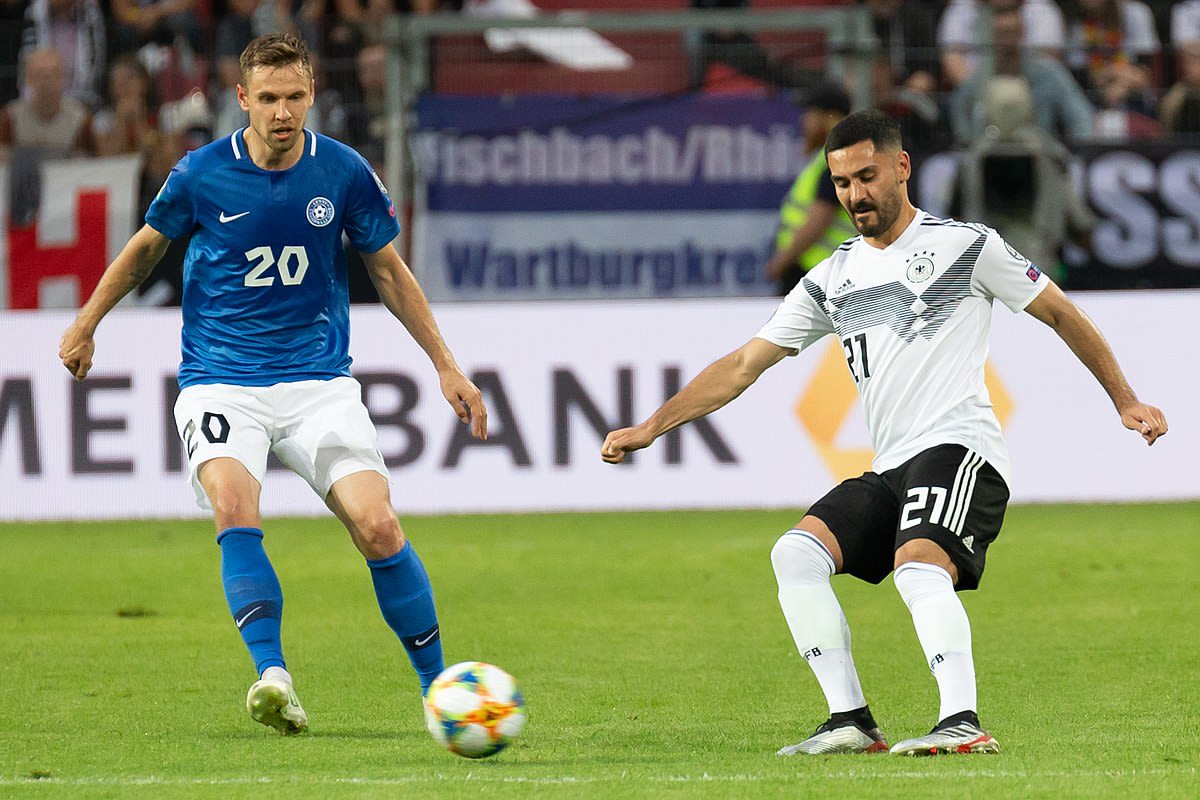
The midfield is the core of any successful Guardiola team: controlling but dangerous in possession; high pressing and destructive without it. The once world class trio of Fernandinho, David Silva and Kevin De Bruyne are no longer, with Fernandinho past his best at 35 and 34 year-old Silva now lighting up La Liga for Real Sociedad.
Fernandinho’s replacement, Rodri, and City’s chief creator, De Bruyne, are almost always picked. When fit, Ilkay Gundogan tends to get the nod over Bernardo Silva in a double pivot alongside Rodri due to his proficiency in La Pausa, a quality so desired by Guardiola to bring control to his midfield. Gundogan also helps Rodri deal with counter attacks; a player who has less mobility and positional intelligence than Fernandinho.
Gundogan is important to City, who have largely performed better when he’s been present. He particularly excelled in controlling the game and providing an attacking threat in the recent draw with West Brom.
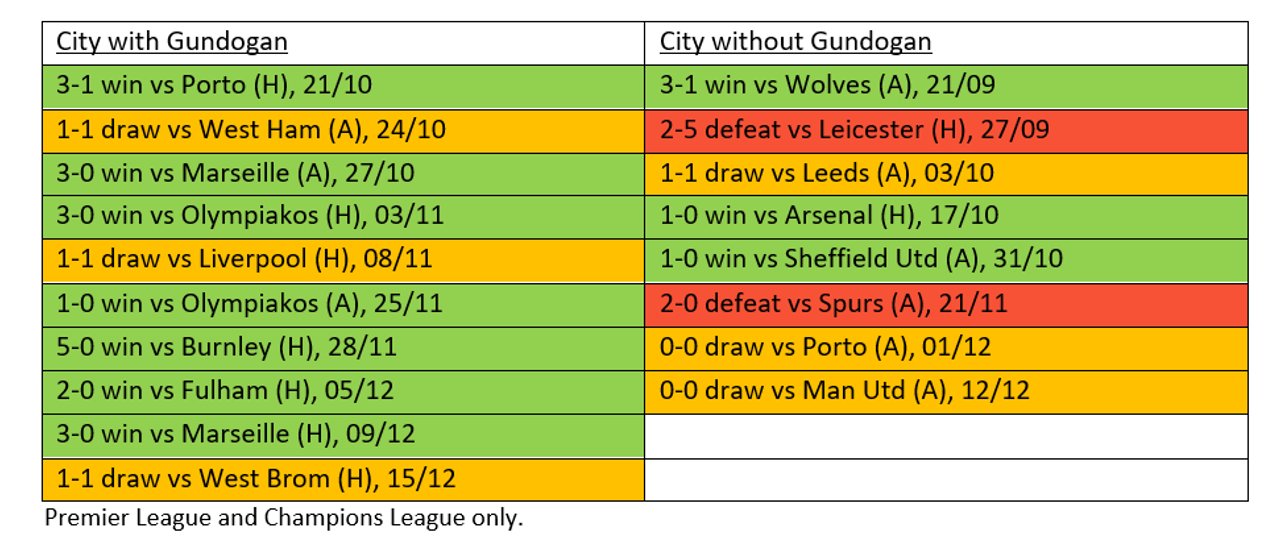
Yet, David Silva’s absence looms large and Gundogan or Bernardo Silva simply don’t provide close to the same level of creativity and goal threat as the departed Spaniard. Hence, the team’s creative responsibilities seem to solely rest on De Bruyne’s shoulders, with fewer shots and big chances this season and significantly fewer goals per game.
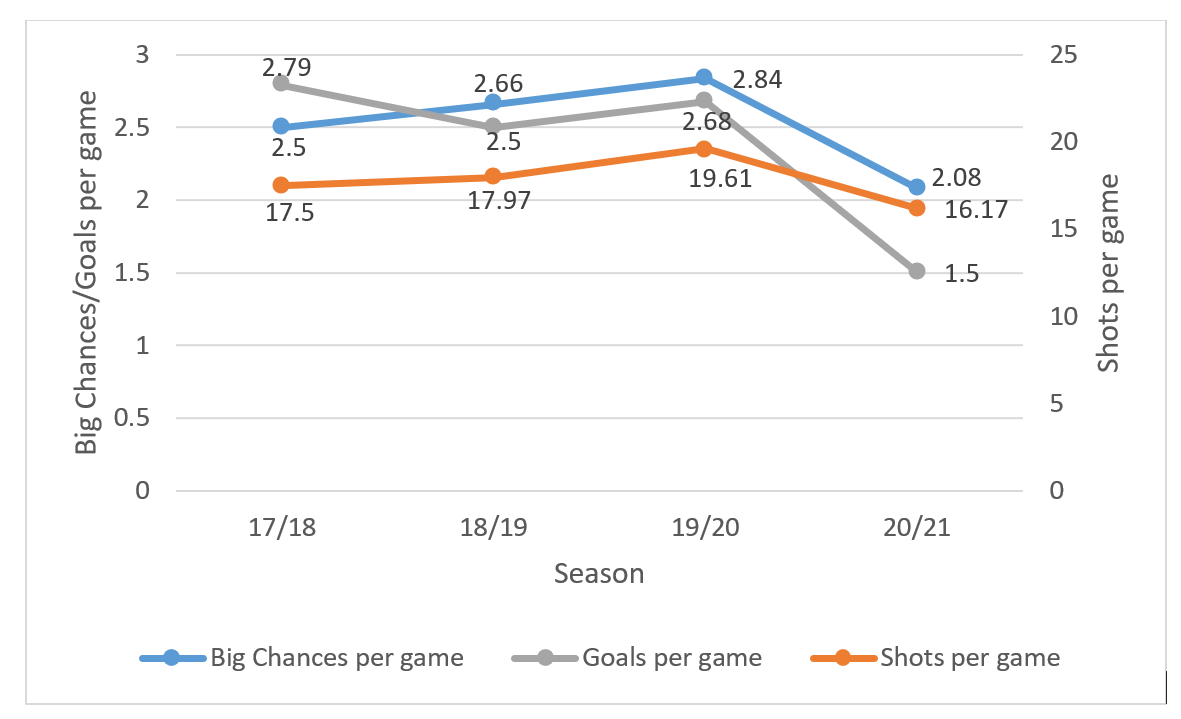
As shown above, goals have been a huge problem for City who have only netted 18 in the Premier League (12th best). Their top scorer Riyad Mahrez only has four, three of which came in one match (vs Burnley). Finishing has been poor as City have underperformed their ‘Expected Goals’ by 4.0 and have missed the most ‘Big Chances’ in the Premier League (22). This was particularly prevalent against West Brom where City would’ve been expected to score 2.84 goals based on the quality of their chances.
Without record goalscorer Sergio Aguero, much of the goalscoring burden has been placed on his understudy, Gabriel Jesus and Raheem Sterling. Both have historically decent scoring records, though have never been seen as natural marksmen like Aguero. In the Premier League last season, when City netted an impressive 102 goals, Jesus and Sterling ranked 1st and 5th for big chances missed (24 and 19, respectively).
"Guardiola’s recent ruthlessness in his press conferences and team selections must continue"
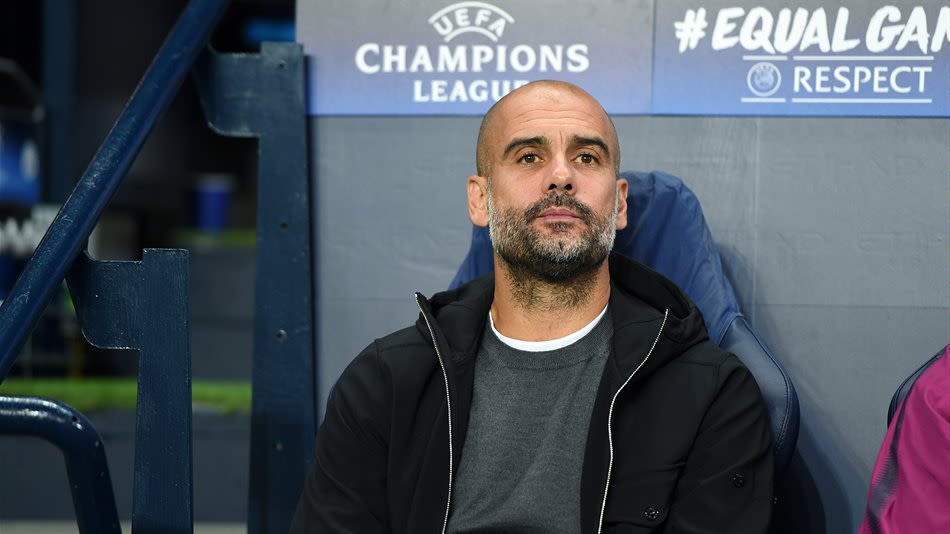
Pep Guardiola’s new two-year contract was widely seen as a good thing among City fans, however City already look to be coming up short this season. Big money signing Ruben Dias and the reinvigorated John Stones look to have solved last season’s defensive issues, yet City lack precision, invention and deadliness going forward.
Replacing Silva and Aguero is a colossal task and perhaps a drop off in performance levels should have been expected. Guardiola’s recent ruthlessness in his press conferences and team selections must continue into the transfer market if the replacements to Man City’s fallen stars continue to underwhelm.

